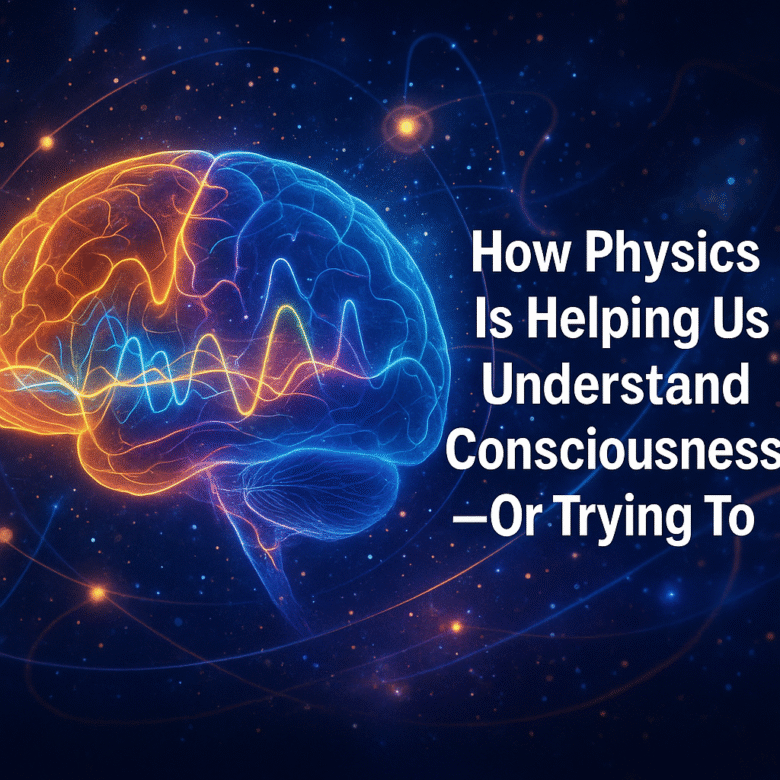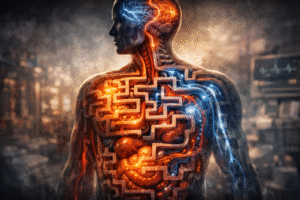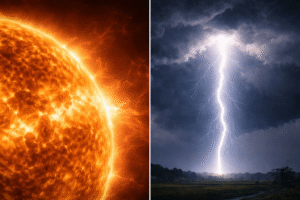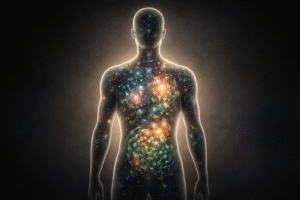Fun fact: Physicist Roger Penrose, who won the Nobel Prize for black hole research, has also proposed a theory linking quantum physics to human consciousness.
For centuries, philosophers and poets wrestled with the mystery of consciousness—the vivid, private experience of being alive. What makes the light “on” in your head? Why do neurons firing in your brain translate into the feeling of love, the taste of coffee, or the sound of music?
Today, physicists are stepping into this age-old debate. In fact, the bold claim at the heart of modern research is this: to understand consciousness, we may need to understand the fundamental laws of physics.
That’s the promise—and the controversy—of exploring how physics might explain our most personal experience.
Why Physics Even Gets a Say
At first glance, consciousness seems like a problem for biology or psychology. Neurons, neurotransmitters, brain scans—those are the usual suspects. But here’s the kicker: even with all our brain science, we still can’t explain the qualia—the subjective “feel” of experience.
Physics enters the scene for one simple reason: the brain is made of matter, and matter obeys physical laws. If we can explain galaxies and quantum particles, why not thoughts and awareness? Or so the argument goes.
Quantum Consciousness: The Penrose-Hameroff Model
Perhaps the most famous attempt to link physics and consciousness is the Orch-OR theory (Orchestrated Objective Reduction), proposed by Nobel laureate Roger Penrose and anaesthesiologist Stuart Hameroff.
They argue that consciousness arises from quantum processes inside microtubules—tiny structures within brain cells. In other words, your mind isn’t just neurons firing like wires in a machine—it’s quantum superpositions collapsing into reality.
It sounds thrilling, almost sci-fi. But here’s the problem: most physicists think the brain is too warm and noisy for delicate quantum effects to survive. Quantum coherence usually requires ultra-cold labs, not a skull filled with blood and electrical activity.
Still, Orch-OR refuses to die. If proven, it would mean our thoughts are literally shaped by quantum mechanics (the physics governing particles smaller than atoms). That would shake both neuroscience and physics to their core.
Information as the Building Block of Reality
Another physics-inspired idea is that consciousness is tied to information.
Physicist John Archibald Wheeler, who coined the phrase “black hole,” also suggested that the universe is fundamentally “it from bit”—that reality itself is built from information. If that’s true, then consciousness could be seen as the way matter processes information.
Some modern physicists extend this argument, claiming that consciousness is not an emergent property but a fundamental one, woven into the very fabric of the universe. This is a controversial but seductive idea—it elevates consciousness from a biological accident to a cosmic principle.
Case Study: Anaesthesia and the Physics of Silence
Anaesthesiologists, interestingly, may know more about the mechanics of consciousness than philosophers. When patients are put under anaesthesia, their brains remain active in some ways, yet consciousness vanishes.
Some researchers argue that anaesthesia disrupts information flow in the brain, breaking the physical processes that sustain awareness. If true, this suggests that consciousness could be measured—and maybe even predicted—by tracking information transfer in neural networks, just like signals in a physics experiment.
It’s a pragmatic window into the mystery: if you can turn consciousness off with chemicals, maybe you can figure out what it really is.
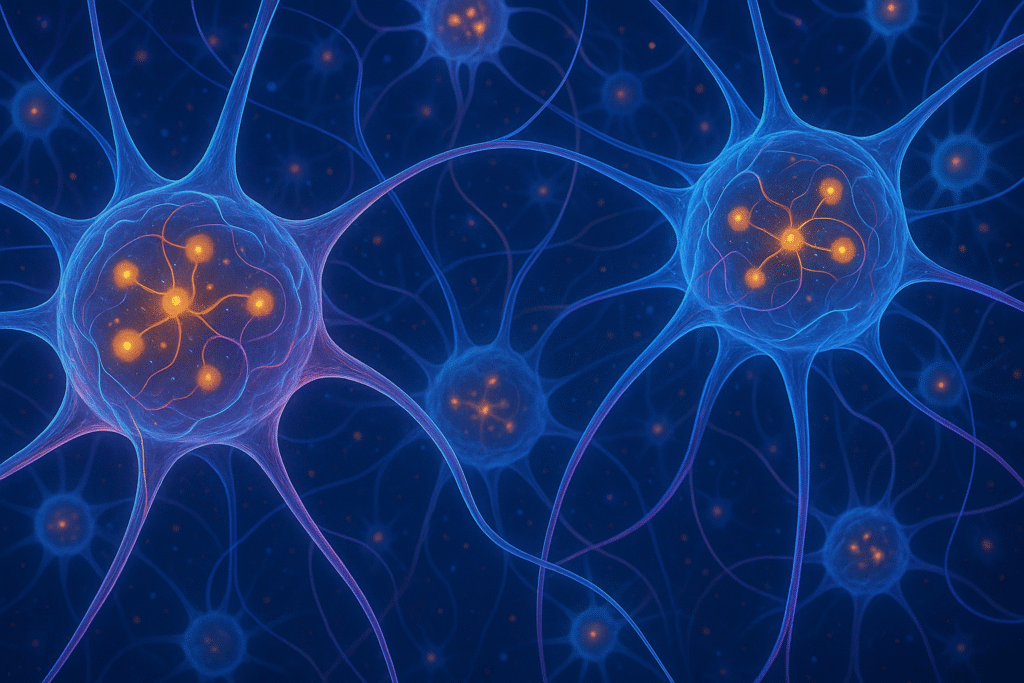
Consciousness as an Emergent Property
Not all physicists chase quantum magic. Some argue that consciousness is like turbulence in fluid dynamics—an emergent property.
Water molecules are just molecules. But when billions interact, you get waves, whirlpools, and tsunamis. Similarly, neurons firing individually aren’t conscious—but in vast, organized networks, something extraordinary emerges.
This approach doesn’t dismiss physics; it reframes it. Consciousness may not require exotic new physics. It might simply be the most complex phenomenon arising from old, familiar physics.
Where Physics May Be Overreaching
Here’s where we get a little provocative. There’s a danger of physics playing “imperial power,” trying to colonize consciousness the way it colonized cosmology and particle science.
The truth is, physics has a history of overpromising. Think of how string theory was once sold as the “theory of everything.” Decades later, it remains unproven. Consciousness may be headed down the same road—an alluring physics frontier that may never deliver.
Sometimes, it feels like physicists can’t resist turning every mystery into a physics problem, even when biology or psychology might be better equipped.
Why It Matters
Why does this debate even matter? Because the stakes are enormous. If physics cracks consciousness, it could transform medicine, artificial intelligence, and even ethics.
Imagine treatments that precisely restore awareness in brain injury patients. Imagine AI (artificial intelligence) systems we could definitively label “conscious” or “not conscious.” Imagine redefining death itself, not as the heart stopping, but as the physical loss of conscious processes.
In short, if physics solves consciousness, it won’t just be a scientific triumph—it will reshape what it means to be human.
Conclusion
Physics has given us black holes, quantum computers, and the Big Bang. Now it’s aiming at the oldest mystery of all: consciousness.
Will it succeed? Maybe. Or maybe consciousness is one of those phenomena that resists being pinned down by equations. After all, explaining awareness in terms of particles and forces might be like explaining poetry in terms of ink and paper—it misses the point.
Still, even if physics only gets us closer, it’s worth the effort. Because the day we truly understand consciousness—whether through quantum physics, information theory, or emergent systems—we won’t just solve a riddle of science. We’ll solve a riddle of ourselves.
Author’s Note
I find it both inspiring and frustrating that some of the brightest physicists alive are puzzling over consciousness. Inspiring because it shows science has the courage to tackle the hardest problem. Frustrating because it sometimes feels like they’re trying to fit a universe-sized question into a lab-sized box.
G.C., Ecosociosphere contributor.

